[Herald Interview] Choe Jae-chun's 'Darwin’s 12 Apostles' sheds new light on evolution theory
Renowned biology professor speaks with 12 fellow Darwinian scholars including Richard Dawkins
By Hwang Dong-heePublished : April 8, 2023 - 16:01
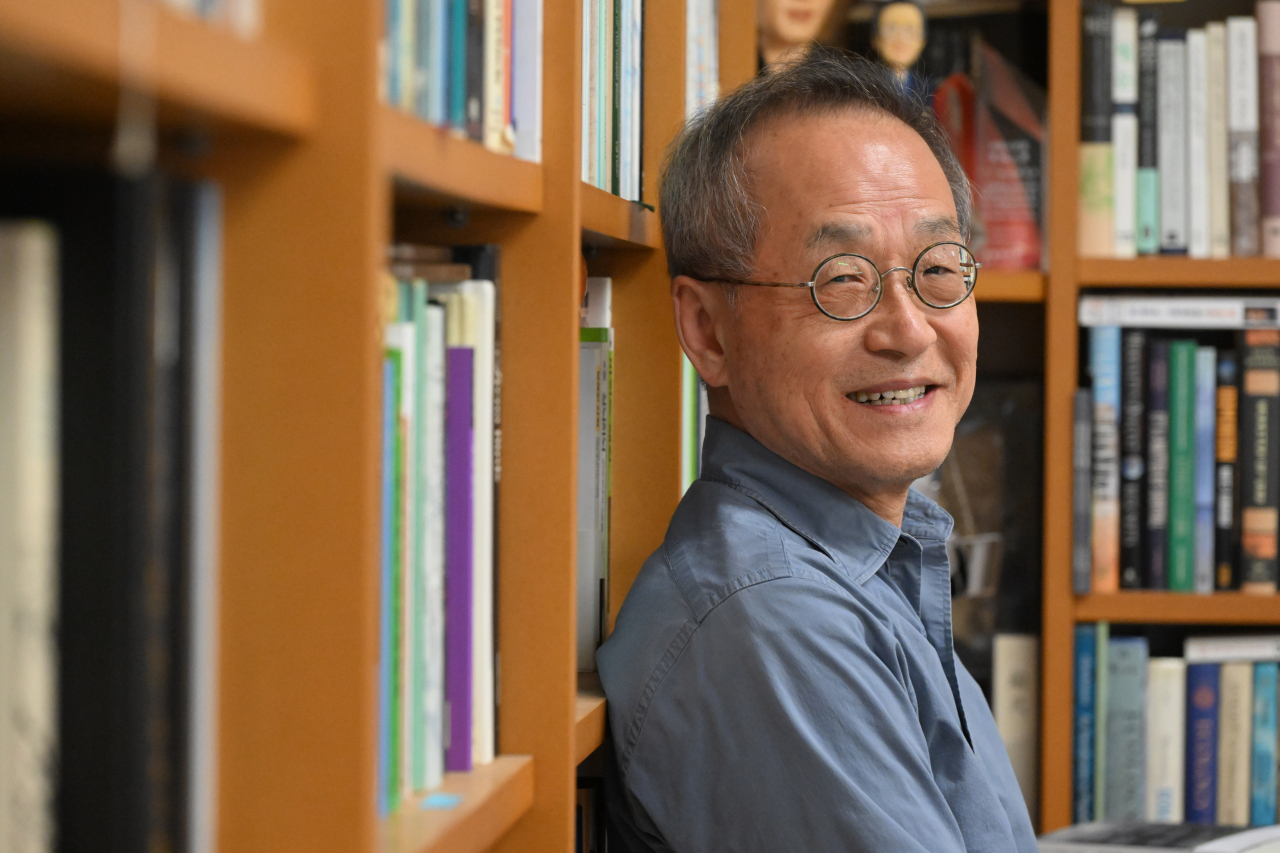
Charles Darwin, an English naturalist and biologist, widely recognized for his contributions to evolutionary biology, published “The Origin of Species” in 1859.
More than 160 years later, Darwin’s theory of evolution is still meaningful to us, said Professor Choe Jae-chun, a renowned expert in the field who received his doctorate in evolutionary biology from Harvard University.
“Freud, Marx and Darwin are often cited as scholars who changed the 20th century. Among them, Darwin is the only one whose theoretical persuasiveness has been increasing,” said Choe in a recent interview with The Korea Herald.
“Professor Svante Paabo, who received the Nobel Prize in physiology or medicine last year, is also an evolutionary geneticist. Behavioral economists have become mainstream -- unlike a decade ago -- and have won many Nobel Prizes.
“However, in Korea, there is not enough consensus on the importance of Darwin’s theory. Through this project, I wanted to highlight Darwin and his theories in a modern light.”
Choe interviewed 12 Darwinian scholars in 2009, including Richard Dawkins, a British evolutionary biologist and author of “The Selfish Gene” (1976) which popularized the gene-centered view of evolution; and James Watson, a Nobel prize-winning American molecular biologist and geneticist recognized for discovering the double helix, the twisted-ladder structure of DNA, in 1953.
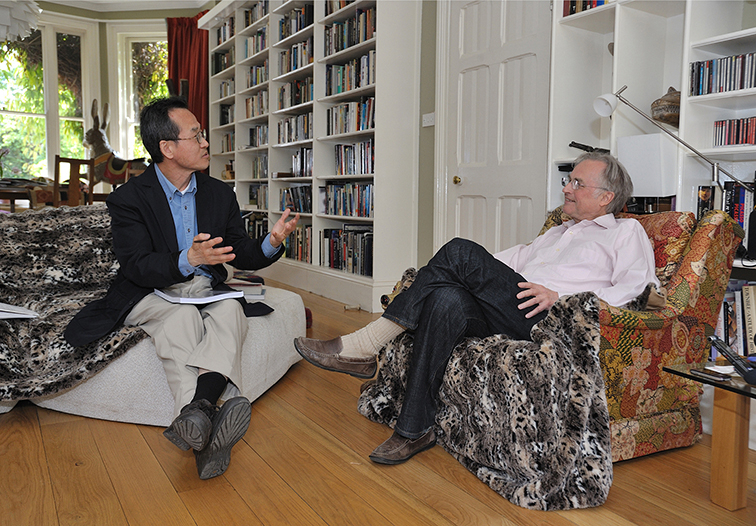
Choe’s new book titled “Darwin’s 12 Apostles,” released on the occasion of Darwin’s birthday -- Feb. 12 -- is published by Science Books, an imprint of the Minumsa publishing group. The book is a collection of conversations Choe had with these 12 scholars.
They are apostles, says Choe, because in a sense they are disciples who not only follow Darwin’s theories, but have also reinterpreted and further developed his work. The book shows that Darwin’s evolutionary insights have spread across the academic world, from science to economics and even philosophy.
“Usually, this kind of book (involves) one-sided interviews where non-experts ask good questions and experts give answers. But in this book, I met with my fellow Darwinian scholars and discussed (the question), ‘Why Darwin is so great?’”
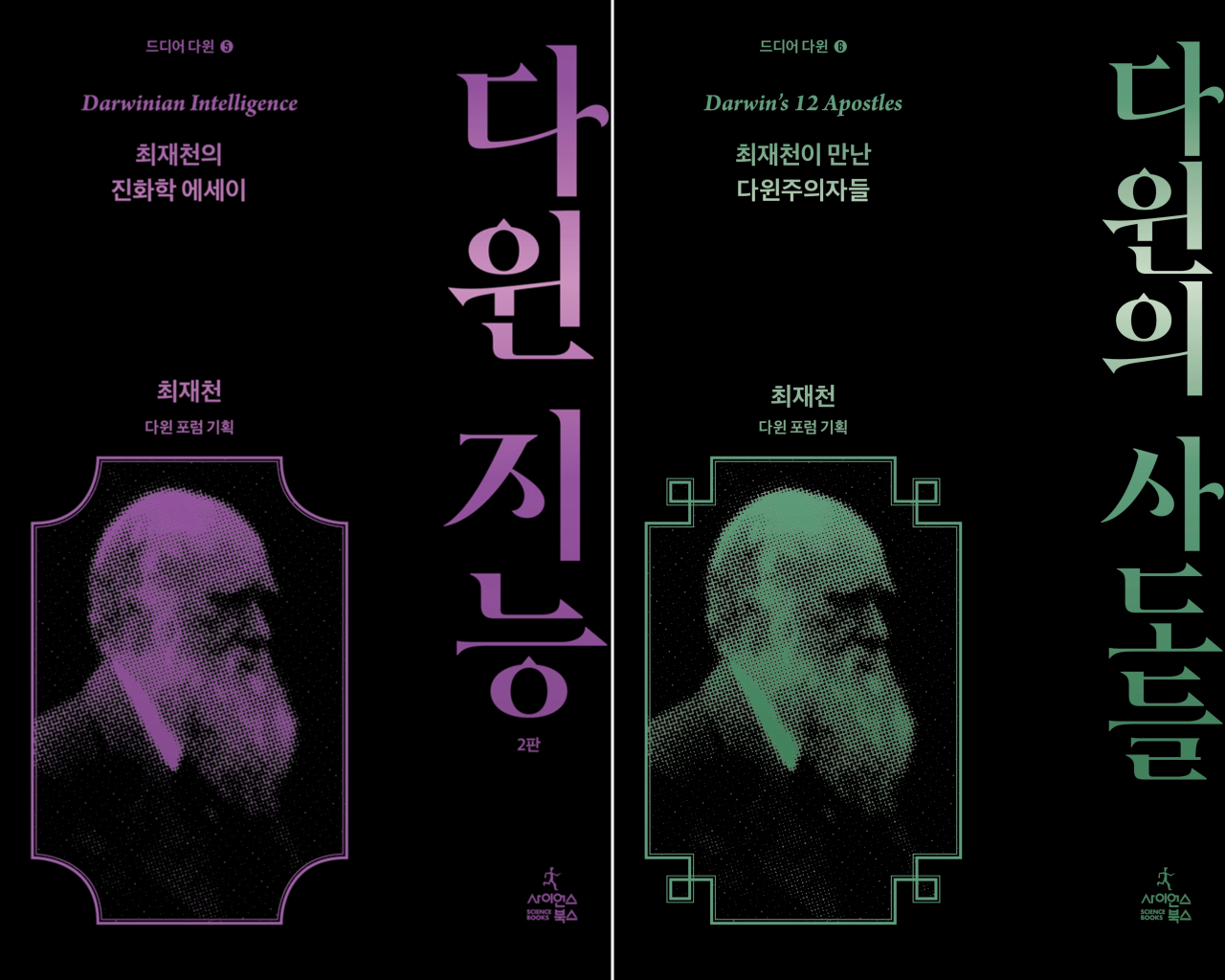
Choe said even though the theory of evolution falls within the field of science, there is a humanistic approach to the study.
“With Darwin’s theory, there is room for interpretation and application -- somewhat like a discussion class in the humanities. Even among Darwinian scholars, they don’t always share the same thoughts.”
It took 14 years for this book to be published because of the unique characteristics of the theory. As time passed, scholars refined or elaborated their expressions or details while confirming the content -- their arguments “evolved,” said Choe.
If you would like to learn about these scholars or their theories, all you need to do is read their books or listen to their lectures. But sincere conversations can extract deeper stories, said Choe.
“So I often threw out some non-scripted questions -- rather absurd and uncomfortable, provocative questions. I hope readers find these questions and enjoy the tension.”
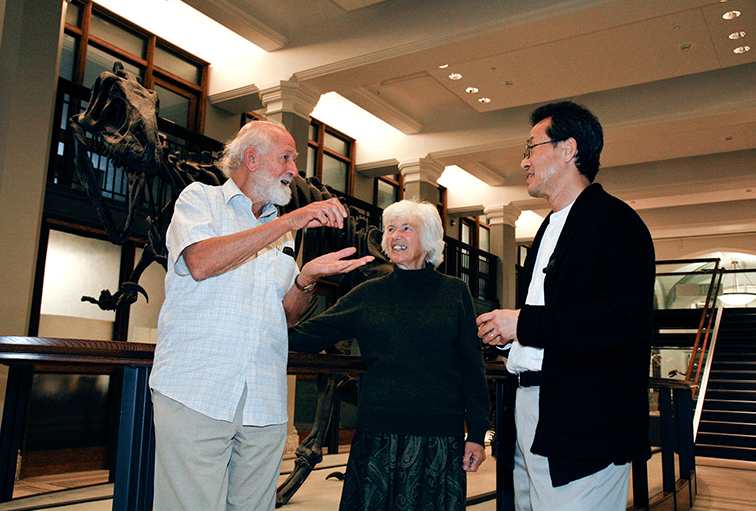
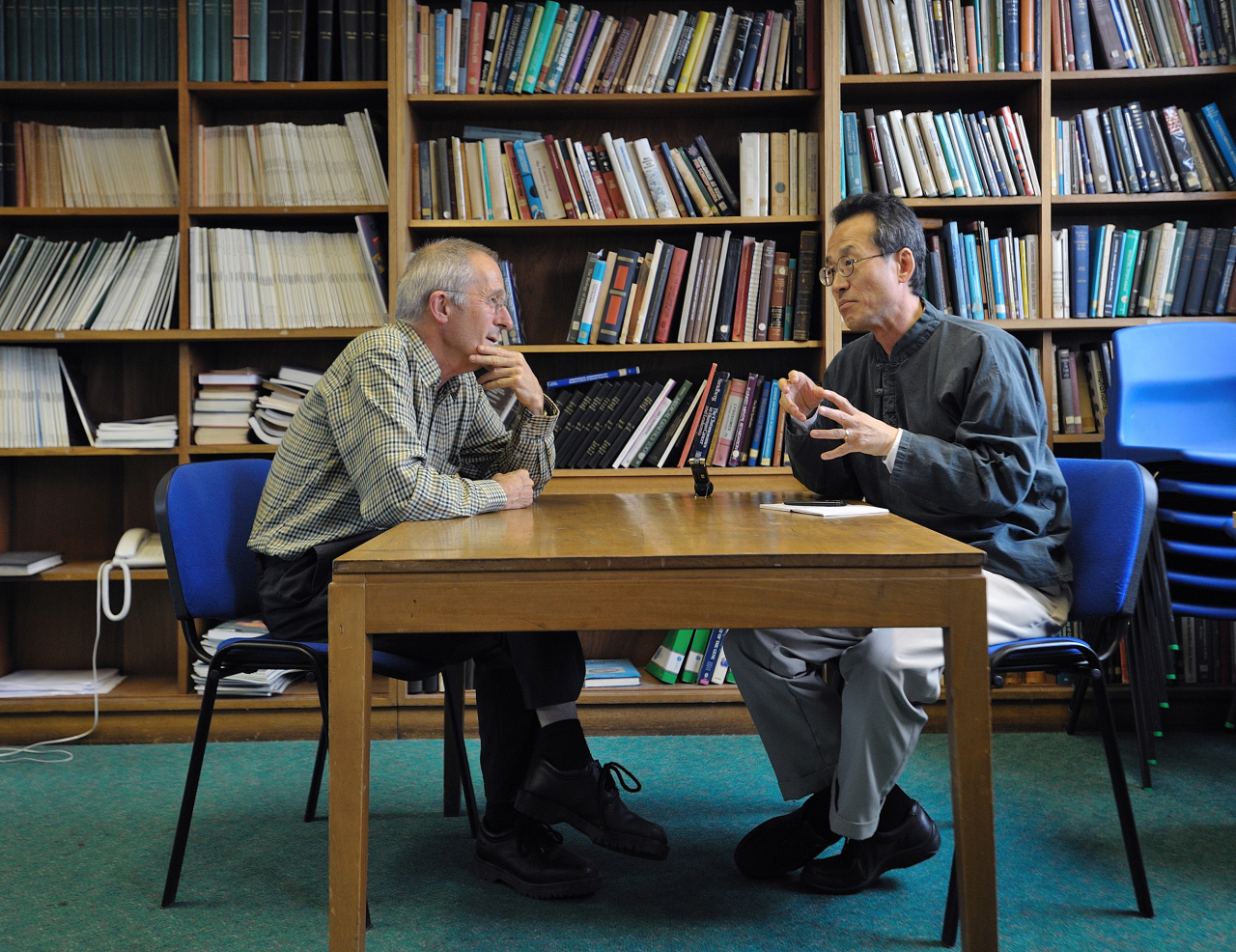
Choe starts off with Peter and Rosemary Grant, who are evolutionary biologists at Princeton University. The British couple are best known for their work with Darwin’s finches on the Galapagos Islands. Since 1973, the Grants have spent six months of every year on the island and worked to show that natural selection can be seen within a single lifetime.
Choe also interviewed Helena Cronin, a Darwinian philosopher; Steven Pinker, who is at the forefront of evolutionary psychology; Daniel Dennett, a cognitive scientist whose research focuses on fields related to evolutionary biology; Peter Crane who works on the diversity of plant life; British geneticist Steve Jones, who is also a TV presenter and prize-winning author on biology; Tetsuro Matsuzawa, a Japanese primatologist; Janet Browne, a historian of science; and science writers Matt Ridley and Michael Shermer.
Starting with his first book on ants, “Ant Empire Unearthed,” in 1999, Choe has written and translated over 70 science books. He has been actively communicating with the public on the importance of science, as well as lowering the barriers to science. He also runs his own YouTube channel where he shares his knowledge and insights on various scientific topics in an accessible and engaging way.
“I wrote or translated one or two books almost every year,” said Choe. “Now looking back, I think maybe these two books (referring to “Darwin’s 12 Apostles and “Darwinian Intelligence,” which was published in 2022) could be my representative books.”
Choe noted that while other books were written to introduce science to the general public, these two books are a culmination of what he has studied and researched over the course of his life.
“Science has a very ironic fate. People cannot live without science, indeed, but if scientists don't speak up about the importance of their work, others do not realize how important it is,” said Choe.
“In the past, there were times when I was scolded or criticized for being media-friendly, but I can now say with confidence that many more scholars and professors in the natural sciences want to do this. Everyone now understands that lowering the barrier to science is important.”
Choe is currently working on the English edition of the book.



















